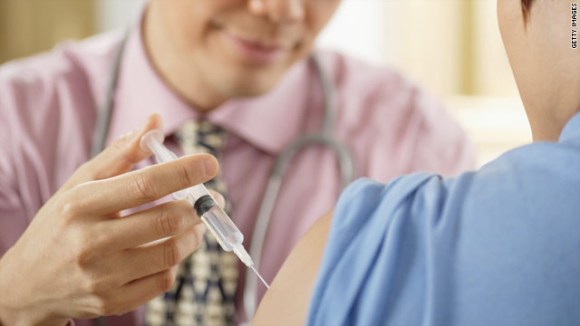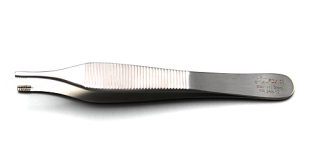Both men and women can have Human papillomavirus (HPV). HPV causes cervical cancer in women and genital warts in men. The HPV vaccine effectively prevents infection with the HPV types responsible for most cervical cancers and can also prevent genital warts.
Human papillomavirus also called HPV is the most widespread sexually transmitted infection in the United States. HPV is a group of viruses that can affect the skin and mucosa. The mucosa is the moist membrane that line different parts of the body, including the mouth, throat and genital area. There are many types of HPV and about 30-40 of these affect the genital area. Some types of HPV can cause skin warts but several types are not harmful.
There are two HPV vaccines: Gardasil and Cervarix. Gardasil, which protects against four HPV types (6, 11, 16, and 18), is approved by the FDA for use by females aged 9-26 to help prevent cancer of the cervix,vagina, and vulva; genital warts, and anal cancer. It’s also approved for males aged 9-26 to help prevent genital warts and anal cancer. Cervarix targets HPV types 16 and 18. It’s approved for females aged 10-25 to help prevent cervical cancer.

HPV Vaccine for Men
HPV infection is common and usually asymptomatic, but can cause genital warts and anal cancer in both women and men. Immunization against HPV considerably reduces cervical cancer cases and lead to fewer cases of genital warts.
Two HPV vaccines, Gardasil and Gardasil 9 if given before a person is exposed to the virus can prevent many cases of cancer genital warts in both females and males. Protection from HPV vaccination is likely to be long-lasting. The best way a person can be sure to get the most benefit from HPV vaccination is to complete all three doses before being exposed to HPV infection.
Two HPV vaccines protect males against most genital warts and anal cancers. HPV vaccination is recommended for 11- and 12-year-old boys, and for men 13 through 21 years old who did not get any or all of the three recommended doses when they were younger. HPV vaccine may be given to men aged 22-26 years who haven’t completed the 3-dose series.
This vaccine can also be given to boys beginning at age nine. HPV vaccination is also recommended for gay and bisexual men, as well as for men with compromised immune systems (including people living with HIV/AIDS) through age 26, if they did not get fully vaccinated when they were younger. The best way a person can be sure to get the most benefit from HPV vaccination is to complete all three doses before being exposed to HPV infection.
HPV Vaccine for Men: Side Effects
It is quite ordinary to have mild side-effects for a day or so. Most common side-effects are mild pain, redness, swelling, itching or bruising around the site of the injection. Other common side-effects are headache, aching muscles and tiredness. Less common side-effects include slightly raised temperature, vomiting, diarrhea, dizziness, fainting and muscle aches. More rarely, people can develop urticaria.
It is quite common for teenagers to have panic attacks before vaccination, or to faint during vaccination. These should not be confused with reactions to the vaccination itself. There is no evidence that the HPV vaccine leads to an increased risk of chronic fatigue syndrome.
HPV Vaccine for Men: Risks
Many women develop HPV infection at certain stage of their lives without knowing that. Some types of HPV are known to increase the risk of developing particular cancers. These are known as cancer-causing or high-risk subtypes.There is a very small chance of a severe allergic reaction (anaphylaxis).
Anaphylaxis is different from less severe allergic reactions because it causes life-threatening breathing and/or circulation problems. It is always serious but can be treated with adrenaline. Certain risk factors for HPV infection includes smoking, multiple sexual partners, early age of first having sex.
HPV Vaccine for Men: Pros and Cons
This vaccine was approved for boys to prevent genital warts. Genital warts are growths that appear around the genital region and can be flesh or grey toned in color. boys vaccinated for this virus can help to potentially lessen the spread of HPV and lower the amount of girls that contract the cancer causing strains of the HPV virus.Here are some pros and cons of vaccine.
Pros
Some pros of HPV vaccine are:
- The HPV vaccine can protect against precancerous cervical lesions.
- Genital warts are benign noncancerous growths that result from skin-to-skin contact. In other words, any direct contact with an infected area, the vaccine can lead to a reduction in genital warts.
- HPV will likely cause more oropharyngeal cancer, the vaccine may prevent against a rising threat of throat cancer.
- The results of vaccines look promising; the prevalence of HPV infections covered by the vaccine fell by more than 75% among women and men.
Cons
Some cons of HPV vaccine:
- The biggest problem of HPV vaccine to males are the side effects that come attached to this type of vaccination.
- One of the biggest side effects is pain in the region where the vaccine was administered.
- It is also significant to note that the long-term risks of giving boys this vaccine are still not completely known. This is one of the biggest reasons why many are doubtful about giving vaccine to the boys.
- Another concern is that boys as young as 9 are encouraged to get the HPV vaccine. Since this is a vaccine associated with sexually transmitted infections, many feel that giving this vaccine to young boys will only increase sexual activity.
 Health & Care Information
Health & Care Information 

